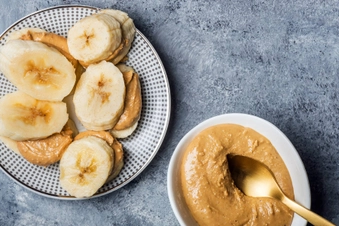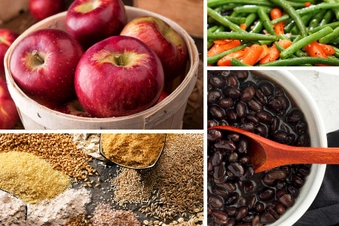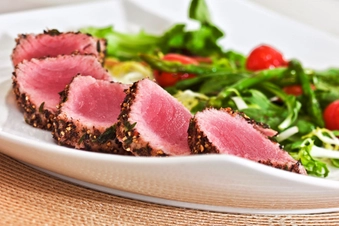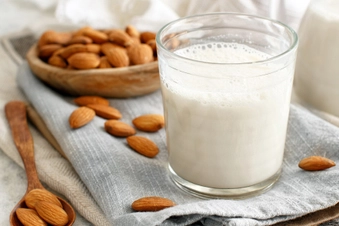Tips for Eating Healthy With Crohn’s Disease

Eat More Fruits and Veggies
Choosing the right foods can dial back inflammation. Eat more fruits, like applesauce, bananas, blended fruits, and raspberries. Veggies like cooked carrots, green beans, leafy greens, and squash are also good choices. Just be sure to add them to your diet slowly to ward off unwanted trips to the bathroom.

Make Sure You’re Hydrated
Stay hydrated by drinking fluids like water, broth, and smoothies. You can also try an oral rehydration solution, which uses sugar and electrolyte salts to hydrate. Drink enough that your urine is light yellow in color. If you don’t feel like drinking much, take small sips throughout your day.

Think Ahead When Eating Out
Make eating out seamless by planning ahead. Look online for menus and choose the best options for you. If you go to a gathering or party, tell your family or friends you’ll bring your own food. For holidays or special occasions, try recipes that match your diet needs.

Eat Small, Frequent Meals
Try eating small, nutrient-rich meals or snacks every 3-4 hours. This may help if your appetite is small, you’re losing weight, or you have a flare up. Try a banana with peanut butter or hummus with crackers. Smoothies and yogurt with berries are also good choices.

Limit High-Fat Foods
Certain foods may lead to more inflammation. Those include red meat, processed meats like hot dogs and sausage, dairy fats like butter and cream, and fatty oils like coconut oil and palm oil. If you love high-fat foods, eat them sparingly and aim for a well-rounded diet. Instead of beef, lamb, pork, or veal, choose chicken, turkey, or salmon.

Avoid Spicy Food
Spicy food may upset your GI tract. Avoid fiery foods like chili and sriracha. When you cook, skip spices like cayenne pepper, chili powder, and curries. Try alternative ingredients to turn your favorite recipes into versions that work for your digestion instead of against it.

Be Aware of Gassy Foods
High-fiber and gas-producing foods may trigger symptoms. Limit raw fruits and vegetables, beans, and whole grains. Try peeling the skin off fruit and vegetables. Or replace them with low-fiber options like bell peppers, cantaloupe, honeydew, mandarin oranges, yellow squash, and zucchini.

Eat More Fish
Omega-3 fatty acids, which are found in oily fish, may lower inflammation and ease your symptoms. Try cod, tuna, and salmon. Eat them a few times a week. For extra omega-3s, sprinkle flaxseeds or flaxseed oil on your food. Or try a fish oil or flaxseed oil supplement.

Limit Alcohol and Caffeine
Beer, liquor, and wine may irritate your digestive system. Coffee and caffeinated beverages like energy drinks and tea may also trigger symptoms. Ease up on drinking and avoid alcohol and caffeine when you’re in the middle of a flare.

Try Dairy Alternatives
Dairy products may aggravate your symptoms. But certain dairy alternatives may be OK. If you love yogurt, try lactose-free yogurt or yogurt with active cultures. If you love cheese, opt for hard cheeses like cheddar or Swiss cheese. Instead of cow’s milk, try almond milk, coconut milk, or lactose-free milk.

Keep a Food Journal
Keep track of your symptoms and what you eat. This may help you spot patterns. Keep a food diary, then ask your dietitian to review it with you. Look for possible food triggers as well as foods that help you feel better.
Show Sources
IMAGES PROVIDED BY:
1. E+/Getty Images
2. Stockbyte/Getty Images
3. Moment/Getty Images
4. iStock/Getty Images
5. iStock/Getty Images
6. The Image Bank/Getty Images
7. (Clockwise, from top left) iStock/Getty Images, iStock/Getty Images, iStock/Getty Images, E+/Getty Images
8. E+/Getty Images
9. iStock/Getty Images
10. iStock/Getty Images
11. iStock/Getty Images
SOURCES:
Academy of Nutrition and Dietetics: “Crohn’s Disease and Diet.”
Cleveland Clinic: “What Not to Eat if You Have Crohn’s Disease.”
Crohn’s & Colitis Foundation: “What Should I Eat?”
Johns Hopkins Medicine: “Inflammatory Bowel Disease (IBD).”
University of Wisconsin-Madison School of Medicine and Public Health: “Inflammatory Bowel Disease Diet Guidelines.”
Weill Cornell Medicine: “Crohn’s Disease: Foods to Avoid (and Foods That Help.”